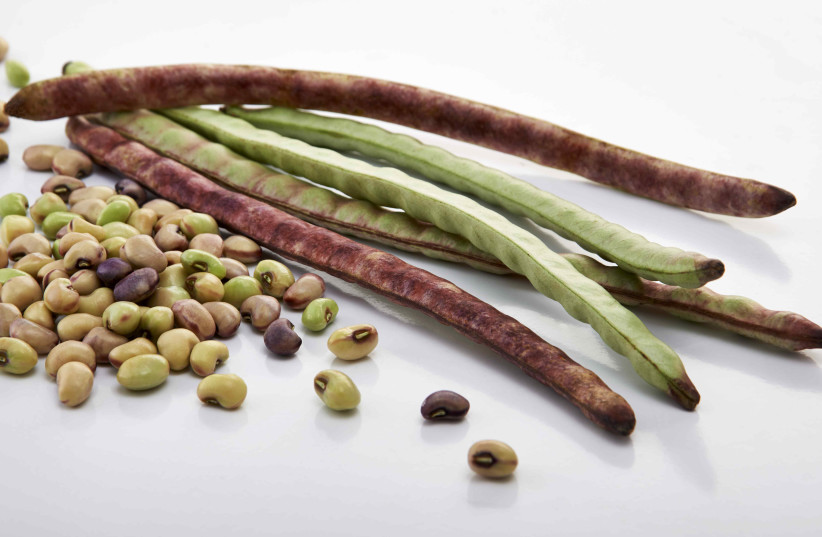Black-eyed peas are often ignored by supermarket shoppers. The modest legume got its name from the black “eye” in the center of the bean where it was attached to the pod; originally, they were called mojette (French for “nun”) because the black eye reminded some of a nun’s head covering.
The bean – known to scientists as vigna unguiculata – is a subspecies of the cowpea, an old-world plant domesticated in Africa and sometimes called an Old World plant domesticated in Africa, and is sometimes just called a cowpea.
But a pioneering Israeli company based at Moshav Givat Hen (east of Herzliya and West of Kfar Saba) and named Better Pulse is effectively integrating food-tech and agri-tech, has unveiled its innovative protein sourced from black-eyed pea plants.
At the same time, the beans have been gene-edited to enable mechanized harvesting. This breakthrough, according to Better Pulse, introduces its black-eyed peas’ protein as a “transformative solution to address the challenges facing the alternative plant-based protein market due to the impacts of global warming.”
As Earth heats up, traditional food crops grown today may not be suited for an environment with higher temperatures. When the global temperature rises, traditional crops will suffer from a significant reduction in yield, causing food shortages everywhere.

Benefits of beans
The company is working to bring to the market new crops that can survive the heat, flourish with little water and fertilizer, and at the same time have an exceptional nutritional profile.
The company harnesses cutting-edge genetic traits that do not fall under the category of genetically modified organisms (GMOs). The beans’ protein stands as a high-quality and dependable alternative for both animal-derived and plant-based protein sources in a wide array of food products, including dairy replacements such as milk and yogurt or plant protein-based products.
An independent agricultural expert told The Jerusalem Post that the idea of cultivating and developing this pea crop is interesting and correct.
The black-eyed pea needs high temperatures, so if the company manages to cultivate the variety to adapt to a hot climate and bring to an economic quantity per unit area, this could be a breakthrough in providing plant protein.”
Currently, more than half of people’s caloric intake comes from just four staple crops – rice, soy, wheat, and corn – but these are not adapted to thrive in extreme conditions like heatwaves and droughts that are now intensified by global warming and threaten the global food supply chain The imperative solution lies in diversifying the assortment of crops to enhance the resiliency of our food security, the company said.
Cowpeas are very nutritious, supporting weight loss, improving heart health, and promoting digestion. They're also versatile, delicious, and easy to include in a variety of recipes.
Like other beans, black-eyed peas are an excellent source of magnesium, which plays a role in over 300 biochemical reactions in the body, including energy production, muscle and nerve function, blood sugar control, and blood pressure management.
Having a white color when cooked and a subtle aftertaste profile, Better Pulse’s bean protein is perfect for turning it into dairy milk-alternative products.
Operating in “stealth mode” in recent months, the company has successfully concluded a proof-of-concept phase during which it achieved the production of over 70% protein-concentrate-grade protein, seamlessly integrated it into diverse food products, scaled-up pilot production processes and initiated patent applications to bolster its forthcoming intellectual property portfolio.
It is now signing collaborations with prominent food manufacturers. It also has exclusive rights to black-eyed peas’ genetics that are ready for mechanized harvesting, enabling cost cost-effective, and profitable cultivation beyond Africa, where most black-eyed peas are grown.
Company founder and CEO Dr. Alon Karpol and colleagues together have more than 40 years of background in the agriculture, food, and protein industries. He previously managed Superbrewd Food Israel, which secured the first-ever regulatory approval to market a bacterial protein as a food source in the US.
